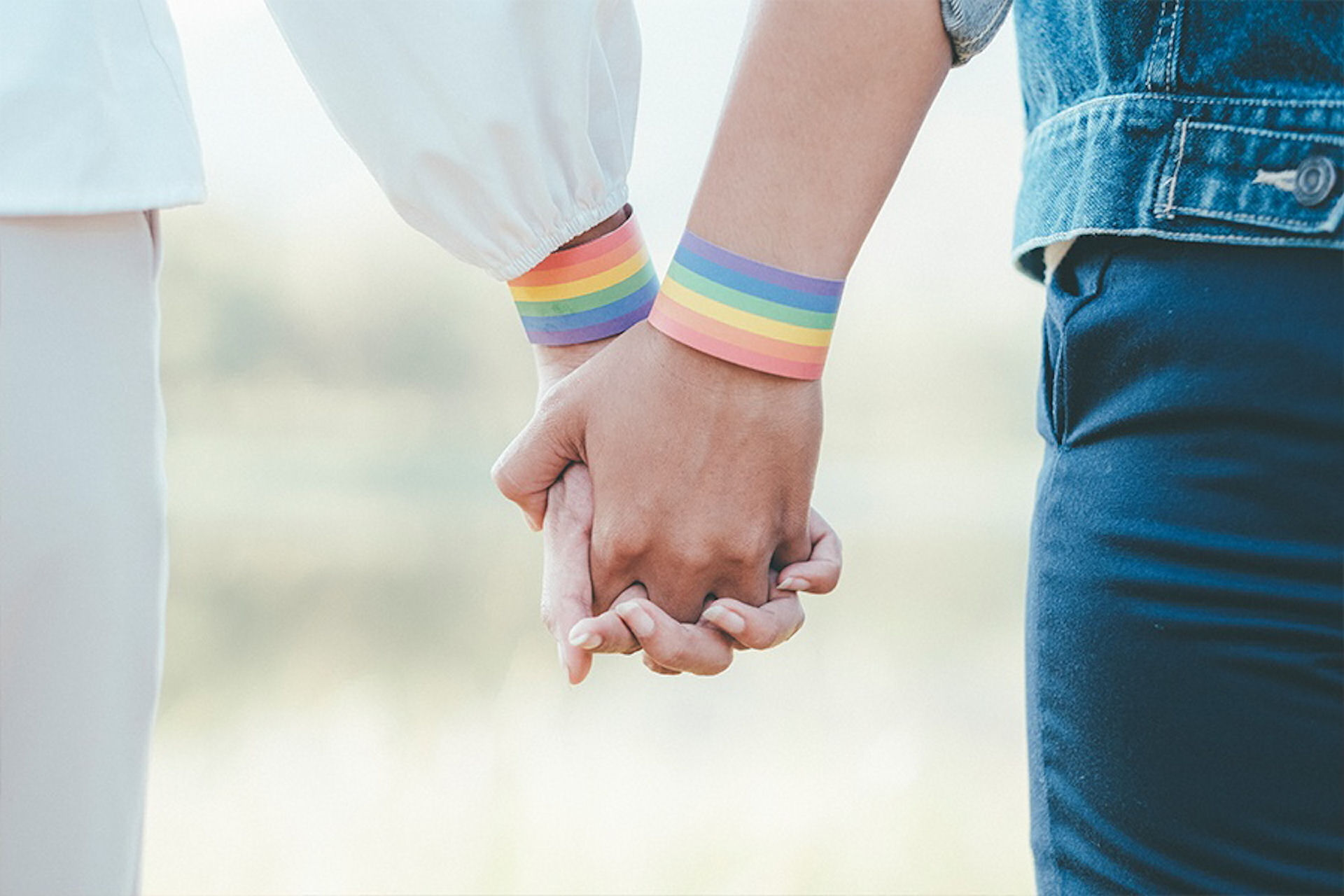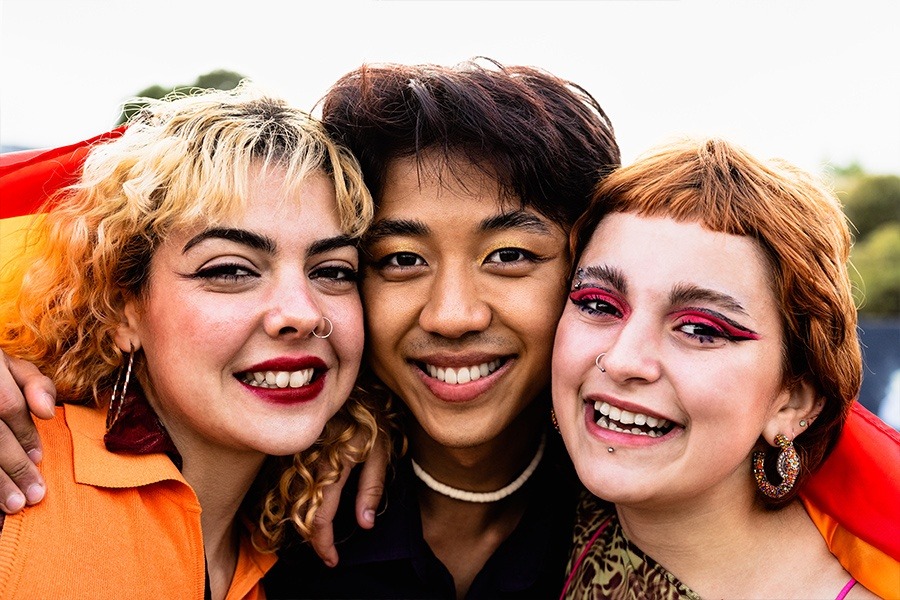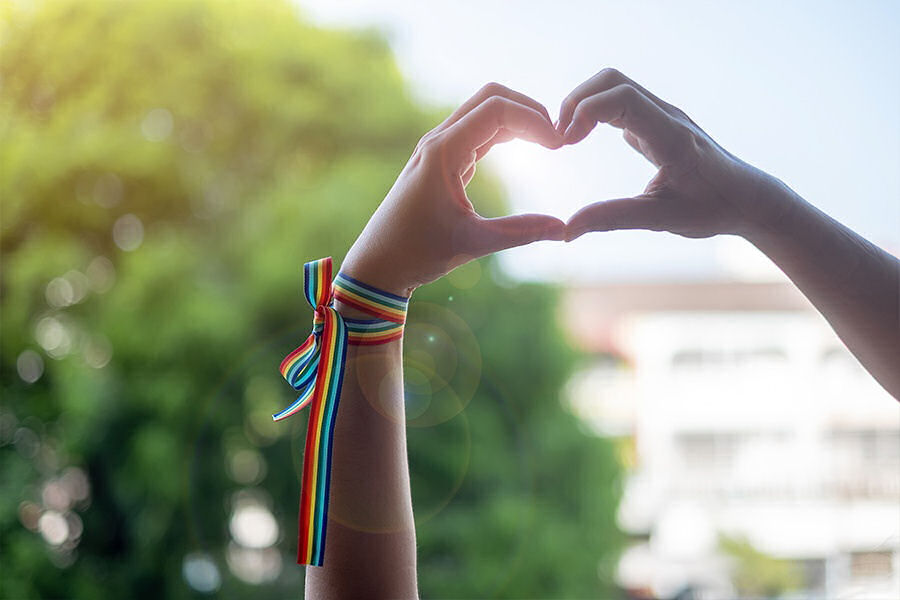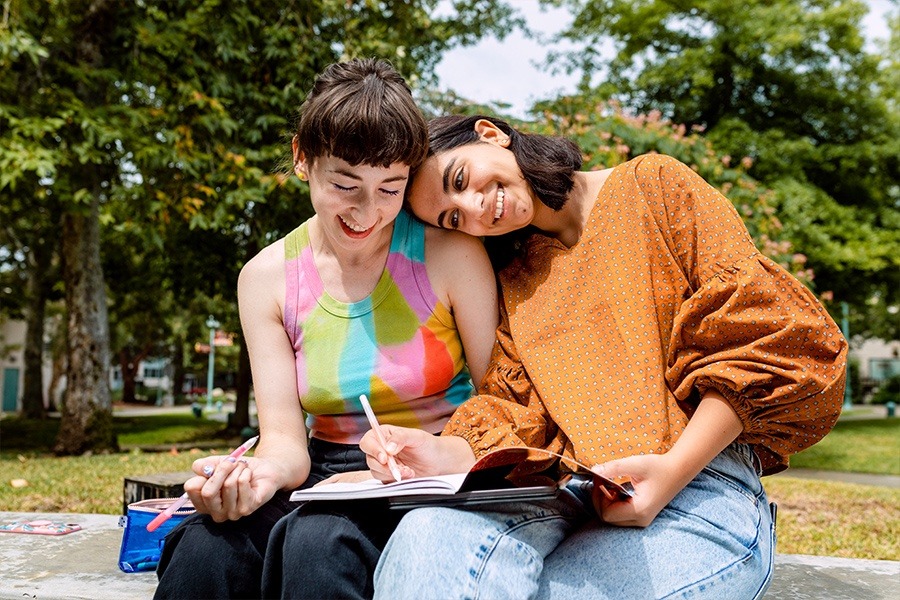During this month, we have an opportunity to celebrate the lives and accomplishments of LGBTQ+ individuals. We are also reminded to take action in order to ensure equal rights for all people regardless of their gender identity or sexual orientation.
There are many ways to celebrate Pride Month and show your support for the LGBTQ+ community. Consider participating in events such as Pride parades or virtual gatherings, donating to LGBTQ+ charities and organizations, displaying rainbow flags on your home or business, wearing masks that feature the Pride flag colors, and using social media to spread awareness.
Additionally, look for ways to honor the accomplishments of individuals in your community who have made a difference in the fight for equality. Hold conversations with family and friends about LGBTQ+ issues, use language that is respectful of all gender identities, and research initiatives to support your area.
By taking part in Pride Month activities, we can honor the progress made while continuing to push for the acceptance and equality of all members of the LGBTQ+ community. Together, let’s make a positive impact this Pride Month.
What Is Pride Month?
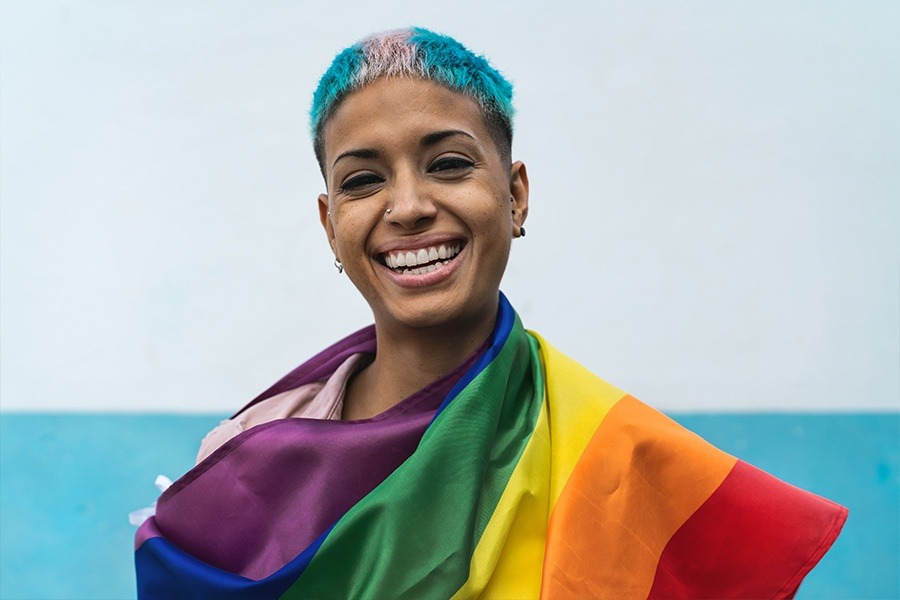
Pride Month is an annual celebration of the lesbian, gay, bisexual, transgender, and queer (LGBTQ+) community. It takes place each June in honor of the Stonewall riots that occurred in New York City on June 28th, 1969. During the month, various events are hosted to help raise awareness about LGBTQ+ rights and issues.
What Does LGBTQ Stand For?
LGBTQ stands for lesbian, gay, bisexual, transgender, and queer. It is used to describe people whose gender identity or sexual orientation does not conform to that typically associated with the sex assigned to them at birth or who don’t identify as cisgender or heterosexual. The Q can also stand for Questioning, as in people who are still exploring their sexuality or gender identity. The acronym is also sometimes extended to include other identities such as asexual, pansexual, and two-spirit. The LGBTQ+ acronym also includes those who identify outside of the gender binary (non-binary) and intersex people.
When Is Pride Day Celebrated?
Pride Day is the climax of Pride Month, and it usually falls on the last Sunday in June. Various organizations host events that allow people to come together from around the world to celebrate their LGBTQ+ identities and show support for LGBTQ+ rights.
What Is the History of Pride Month?
The history of Pride Month began in June of 1969 when a series of riots broke out at the Stonewall Prallide Inn which is linked to the New York City Stonewall riots. These riots, which were sparked by police harassment and discrimination against the gay community in NewYork, served as a catalyst for the modern LGBT rights movement. Since then, Pride Month has been observed every year to commemorate the anniversary of these riots and to celebrate the progress made in achieving LGBTQ+ rights.
What Is the Pride Month Timeline?
The Pride Month timeline begins in 1970 when the first Pride Parade was held in New York City on June 28th. The following year, additional cities around the world began hosting their own Pride events. In 1994, President Bill Clinton declared June as Gay and Lesbian Pride Month. And finally, in 2020, President Joe Biden officially designated June as LGBTQ+ Pride Month.
What Are Some Traditions of Pride Month?
Pride Month is traditionally celebrated with parades, festivals, and various other events throughout the month of June. These events often feature rainbow flags and colors, drag shows, music performances, and speeches from prominent members of the LGBTQ+ community. Additionally, many people wear Pride clothing or accessories to show their support for the cause.
LGBTQ and Mental Health Disorders: By the Numbers
LGBTQ+ individuals are at a higher risk for developing mental health disorders and coping with depression, anxiety, and substance abuse. According to the National Alliance on Mental Illness (NAMI), LGBTQ+ adults in the US are almost three times more likely than heterosexuals to experience a mental health condition such as major depression or generalized anxiety disorder. Additionally, research suggests that LGBTQ+ youth are more than twice as likely to have depression and almost three times more likely to experience an anxiety disorder compared to their heterosexual peers.
LGBTQ and Substance Use Disorder: By the Numbers
Substance use disorder is also a serious issue within the LGBTQ community. According to NAMI, LGBTQ+ individuals are more likely than heterosexuals to have used drugs or alcohol to cope with stress and anxiety. Additionally, research suggests that lesbian, gay, and bisexual youth are almost four times more likely than heterosexuals to smoke cigarettes, 3.5 times more likely to have used marijuana, and almost four times as likely to have used other drugs during the past year.
How Important Is It to Attend a Treatment Center That Cares About LGBTQ Needs?
Attending a treatment center that specializes in LGBTQ issues is essential to ensuring the best possible outcome for those seeking addiction and mental health treatment. LGBTQ individuals need specialized care and support, which can only be provided in an environment that understands their unique needs. Treatment centers that are welcoming of LGBTQ individuals provide a safe space for them to heal without fear of judgment or discrimination.
What Are the Treatment Options That Westwind Recovery® Offers for the LGBTQ Community?
At Westwind Recovery®, we understand the unique needs of the LGBTQ+ community and strive to provide specialized care that is tailored to meet LGBTQ+ individual requirements. Our experienced team of counselors and clinicians is passionate about helping our patients achieve successful long-term recovery. We offer a variety of treatments for mental health conditions such as depression, anxiety, bipolar disorder, and OCD, as well as addiction treatment for substance abuse, alcoholism, and opioid addiction.
FAQs About Pride Month
Q: What is Pride Month?
A: Pride Month is an annual celebration of the LGBTQ+ community in June. It serves as a time to recognize the progress made in achieving LGBTQ+ rights and celebrate diversity and inclusion.
Q: How to Support Pride Month?
A: There are many ways to support LGBTQ+ rights during Pride Month. You can attend local Pride events, wear clothing or accessories that support the cause, donate to LGBTQ+ organizations and charities, volunteer your time with LGBTQ+-related causes, and educate yourself on the issues facing the community.
Q: How to Celebrate Pride Month?
A: Celebrating Pride Month is a great way to show support for the LGBTQ+ community. You can attend a Pride celebration in your area, listen to speakers from the community, fly or wear the rainbow flag, and check out events hosted by organizations and businesses. Additionally, taking part in pride parades and listening to music from LGBTQ+ artists are also great ways to show your support.
What Is the Link Between LGBTQ and Trauma When It Comes to Discrimination?
Prejudice and discrimination against the LGBTQ+ community are a major source of trauma for many individuals. Research shows that members of the LGBTQ community are more likely to experience discrimination in areas such as healthcare, education, employment, housing, and adoption. This can lead to feelings of isolation and depression which can have long-term consequences on their psychological well-being. It is important for those who are affected by discrimination to seek professional help and support from organizations that specialize in providing LGBTQ-affirming care.
The Benefits of an LGBTQ-Specific Treatment Program at Westwind Recovery®
At Westwind Recovery®, we provide a specialized program for the LGBTQ community that focuses on issues specific to them. This includes topics such as coming out, family acceptance, workplace discrimination, mental health, and addiction. We offer individualized treatment plans tailored to meet each patient’s unique needs and help them achieve their recovery goals. Our team of experienced clinicians and counselors provides a safe, supportive environment where LGBTQ individuals can work towards achieving long-term sobriety.
As we recognize and celebrate Pride Month, Westwind Recovery® is committed to providing the best possible care for our LGBTQ patients. We are dedicated to creating an atmosphere of acceptance and understanding so that our patients can focus on healing without fear of judgment or discrimination.
We invite you to join us in celebrating Pride Month and showing your support for the LGBTQ community. Together, we can create a world where everyone is free to live their truth without fear of discrimination.
Westwind Recovery® Provides Mental Health and Substance Abuse Treatment for Those in the LGBTQ Community
At Westwind Recovery®, we recognize the unique challenges that members of the LGBTQ+ community face when it comes to seeking treatment for substance abuse and mental health issues. We provide evidence-based therapeutic services and support designed specifically for those in the LGBTQ+ community. Our team of experienced clinicians and counselors is committed to creating an atmosphere of acceptance and understanding so that our patients can focus on their recovery without fear of judgment or discrimination.
Our goal is to help our patients find healing and create a successful long-term recovery plan. We invite you to join us in celebrating Pride Month and showing your support for the LGBTQ community. Together, we can create a world where everyone is free to live their truth without fear of discrimination.
If you or someone you know is in need of mental health or substance abuse treatment, please contact Westwind Recovery® today. We are here to provide the care and support needed for a successful recovery.

Dr. Deena is the Chief Clinical Officer of Westwind Recovery®, an award-winning outpatient treatment center in Los Angeles where she oversees the clinical and administrative program and treatment methods. Dr. Deena is a doctor of psychology and licensed clinical social worker since 1993. LCSW #20628. Originally from the East Coast, Dr. Deena has worked running treatment centers, worked as a therapist in psychiatric hospitals as well as school settings and currently has a thriving private practice in the LA area. Dr. Deena has appeared regularly on the Dr. Phil Show as an expert since 2003. She has also been featured on many other TV shows, podcasts and has contributed to written publications as well as podcasts.
